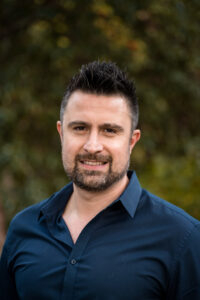Hello,
My name is Kan Guvensel. I am both an academic and a practitioner. I am currently a Clinical Assistant Professor at Georgia State University, and the Program Coordinator of the CACREP Accredited Clinical Mental Health Counseling Program within the Department of Counseling and Psychological Services. My research focuses on psychological well-being, masculinity, minority stress, and multicultural issues such racial mislabeling, international counseling, refugee adjustment, LGBT issues in counseling. My studies have been published in both national and international peer reviewed journals, and I presented in numerous local and national conferences on these topics. I tremendously value scientific understanding, and as a producer and a consumer of scientific knowledge in my field, I rely on empirical evidence to inform my practice and to counsel my clients.
As a practitioner, I am a Licensed Professional Counselor (LPC) and a Certified Professional Counselor Supervisor (CPCS). I am also a National Board Certified Clinical Hypnotherapist (NBCCH). Although I specialize in anxiety, trauma, and mood/behavior disturbance, my clients come to me with many other difficulties and expectations. I work with individuals who are troubled with depression, interpersonal relationships, grief/loss, life transitions, self-esteem issues, emotional difficulties, acculturation, sexual identity, same sex relationship difficulties, men’s issues and several other concerns. And because of this variety, I tailor each session according to your needs, and draw from a large range of approaches to assist you in resolving your concerns and meeting your mental health goals in counseling.
My main approach to counseling is comprehensive and it focuses on the difficulties and the paradoxes of your life rather than psychopathology. Let’s face it: we all get stuck sometimes. And when that happens, we need someone to help us free ourselves. As living organisms, we have an innate ability to self-regulate, yet sometimes this inherent self-promoting mechanism gets blocked due to different hindrances such as traumatic experiences, stress, depression and other mood dysregulations, anxiety, grief, relationship issues, and even systemic oppression. Within the safety of the therapeutic encounter, I believe that my role as a counselor is to help you regain your freedom from whatever might be keeping you from living authentic, optimally functioning, and fulfilling lives whether as an individual or a couple.
When I sit with you, you mean more to me than an appointment on my daily planner. You matter to me as a person. I strive to build a strong therapeutic relationship with you. The relationship between you and I in this immediate moment… Nothing takes precedence over this relationship.
Being a counselor, I find that there comes a time in therapy where everything fades away in the distance; credentials, diplomas, positions, ranks, the therapist-client roles we play, etc. And what is left in that moment is two people in the realm of complete genuineness and authenticity, revealing their humaneness to one another, showing their vulnerabilities, fears, and anxieties. Two people, stripped away from all the ego defenses, are relating to one another, making genuine interpersonal contact. This is the field on which the healing occurs.
How am I different
I utilize the Wellness Model of mental health as opposed to the traditional medical/disease model.
In the medical model, a client, who is usually referred to as a patient, is theorized to have mental dysfunction or disorder. Through the assessment of this patient’s presenting symptoms, the disorder is identified and a treatment program that addresses the disorder is implemented to alleviate the disorder.
The medical model is often criticized for objectifying its consumers through assigning diagnoses to situational human difficulties. However, empirical evidence[1] suggests that human experience is too complex and contextual to be reduced to a single psychological diagnosis and a treatment based upon that diagnosis. In fact, decades of outcome research in counseling concluded that when it comes to helping people reach their mental health goals, diagnosis and a specific treatment based on this diagnosis has very little impact on the successful counseling outcome.[2]
In contrast, in the Wellness Model the client-counselor encounter is comprehensive and it considers the contextual, multicultural, systemic, and societal factors that contribute to your distress as well as well-being. This model embodies and inside-out approach to mental health and strives to draw out your strengths so that you can make positive changes and live a more fulfilling life as opposed to attempting to alleviate a so-called mental disorder.
Whereas this approach does not deny the importance of mental challenges you may endure, in counseling, you and I work collaboratively in a therapeutic relationship that searches for your strengths, internal & external resources, and personal goals in order to enable you to reach optimal levels of functioning In the Wellness Model, the ultimate goal of counseling is not to treat a disorder, but to empower you so that you can live your life more happily and meaningfully.
Decades of scientific evidence[1] in counseling clearly proved that the most important determinant of successful counseling process is the strength of the relationship between a client and the counselor. This is exactly what I am offering you when you come to work with me on your mental health goals: a safe and authentic therapeutic relationship based on empathy and unconditional positive regard with you in the center of it. Nothing takes precedence over this relationship.
Again, welcome … I am looking forward to working with you.
[1] Wampold, Bruce, E. (2001). Great Psychotherapy Debate: Models, Methods, and Findings. Routledge
[2] Duncan, B., & Miller, S. (2006). Treatment Manuals Do Not Improve Outcomes. In Norcross, J., & Levant, R., & Beutler, L . (2005). Evidence-based practices in mental health: Debate and dialogue on the fundamental questions. Washington, D.C.: American Psychological Association Press.